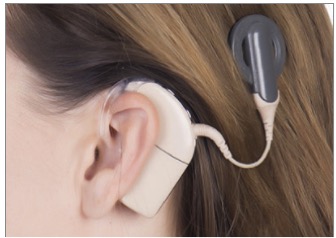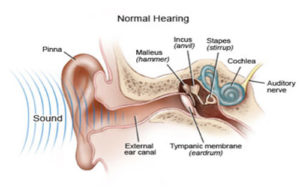
- Adult Cochlear Implants: Surgery and What to Expect - September 25, 2017
- Adult Cochlear Implants: An Overview - September 25, 2017

- Risks of Surgery for Surfer’s Ear - October 26, 2017
- The Dangers of Untreated Exostosis / Surfer’s Ear - October 26, 2017
- Surfer’s Ear Treatment: Chisel vs Drill - October 26, 2017
Cochlear implants are a groundbreaking technology that are allowing people of all ages to regain substantive and useful hearing. Even though this procedure is generally safe and highly effective, it is not uncommon for patients to have questions regarding surgery, recovery, and costs.

What needs to be done to prepare for surgery?
Several medical assessments are needed before implantation can take place, including: comprehensive hearing testing, immunizations, and imaging (CT scan). The actual surgery for a cochlear implant is relatively short and safe if it’s performed by a trained otologist (an ENT who specializes in ear surgery) who has experience with this procedure.
What is recovery from surgery like?
The recovery after surgery is typically short: Patients are usually discharged to their home on the same day of the surgery and can take part in light activity starting the day after surgery.
When does my implant start working?
The cochlear implant is activated about one month after surgery, in order to allow the skin over the implant to heal. The activation is the first time that the patient hears through the implant, and the implant settings are usually adjusted during this appointment. At first, the sound from the cochlear implant may sound robotic, but the quality of the sound and understanding of speech improves with each week.
Unlike hearing aids, cochlear implants work differently and may take some time before their full potential is realized. Rehab for cochlear implants is similar to rehab after most surgeries; the results are not always immediate and require time and training. During the rehabilitation process, therapy will include learning how to use and hear with the cochlear implant. Although it provides the ability to hear, cochlear implants do not provide the exact sounds that regular hearing provides. Therefore, hearing must be relearned.
Is the implant covered by insurance?
Unlike hearing aids, which are not covered by most insurance companies, cochlear implants usually can be partially or fully covered by most insurance companies, including Medicare. However, some insurances may require some more specific tests to prove that a patient is a candidate. A growing trend by some insurance companies is to deny approval for implanting the opposite side once a patient already has one side implanted. This is because they may argue that the cost outweighs the benefit. However, there are many research studies that prove the benefits of wearing two implants, and these denials can usually be overturned with the help of the doctor.
To learn more about hearing and cochlear implants, please visit: eardoctorla.com.



